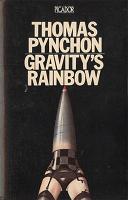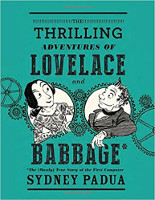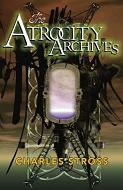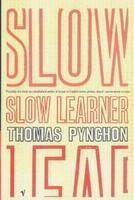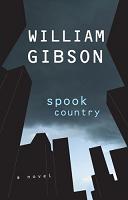 I don't think I need to introduce William Gibson here, no? The man who shot to fame with Neuromancer (book & trilogy), and has had many a great book (never mind award) to his name since then? Good.
I don't think I need to introduce William Gibson here, no? The man who shot to fame with Neuromancer (book & trilogy), and has had many a great book (never mind award) to his name since then? Good.
Spook Country is the 2nd Bigend novel, although it's a stand-alone effort, and not really connected to Pattern Recognition except for also having Hubertus Bigend moving pieces around in the background.
We join Hollis Henry, formerly of the Curfew (short-lived cult band) in LA, where she is on assignment to write a piece on locative virtual art for a new magazine called Node (some kind of European Wired, but don't say so... - at the time this book was published there was a fake website for the magazine on the go; this looks a bit different now). Alberto Corrales, one of the artists she works with, puts her in contact with the reclusive facilitator/techie Bobbie Chombo, who apparently is the one who makes all these GPS linked VR Overlays work for the artists. But Bobby is also involved in something else, something he's even less keen for Hollis to see than the rest of the pieces he's working on (never mind himself!).
Tito, meanwhile, is a secret-service trained (don't ask which secret service. It's rather less than clear...) member of a Cuban-Chinese organized crime family (with Russian links) in New York. They don't commit crimes themselves, all they do is facilitate the activities of others. Tito is mainly a courier, and recently he's been involved in picking up several iPods and handing them to a contact on Times Square
Milgrim is a Junkie. And a captive, of a man called 'Brown', who works for some kind of Secret Service or similar agency (no, it's not clear or simple here, either). Brown needs Milgrim because he's bugging an IF (Illegal Facilitator) who is communicating in Russian (or in Volnapuk, its approximation in the Latin Alphabet). Milgrim need Brown because he has a bag of Ativan/Rize, which he need regular access to for his comfort and wellbeing. On Facebook such a relationship would be described as 'it's complicated'...
These 3 strands are told in short chapters, each of which follows an individual strand, which wind themselves around each other, but which intersect only very rarely and briefly (a classic Gibson structure). The chapters have interesting titles, which explain, foreshadow, indicate, expand, and frequently mislead and/or conceal.
The entire story is told in the third person, and written in the perfect tense, which gives it some kind of gravitas, and removes the urgency which the present tense would give such a story. Much appreciated effect, IMHO. The language Gibson employs struck me as elaborate, and stylized, sometimes colourful, but also frequently poetic. Especially Milgrim's drug tinted experiences, perception, and dreams are particularly reminiscent of Pynchon dream sequences. Good stuff!
There are plenty of hidden machinations in the plot and the backdrop/setting. Wheels turn within wheels, and few people are what they seem; except for the main characters, who wander through this world - as innocencts, or at least as unwitting foils - where other people change the set-pieces into new configuration as they feel is needed. This also gives the novel it's (slightly misleading, in my opinion) title I guess.
We also get a throw-back, in the form of Tito's Gods/spiritual entities, to both the Neuromancer series and, at least to me, a nod to Gaiman’s American Gods. I enjoyed that familiar chord in the music, so to speak!
I was rather hesitant to pick up this book, mostly due to the title I guess. It reminded me of Greg Bear's Quantico, or Stephen Bury's Cobweb, both of which I enjoyed after getting over the setting, so I cannot really pinpoint what led to leaving this on my reading pile for years.
Either way, this reminded me that Gibson is a great writer, and why I love his books. Well worth your time, too!
More William Gibson
Title: Spook Country
Series: Bigend
Series Number: 2
Author: William Gibson
Reviewer: Markus Thierstein
Reviewer URL: http://thierstein.net
Publisher: Viking/Penguin
Publisher URL: http://www.penguin.com
Publication Date: 2007
Review Date: 110928
ISBN: 9780670914949
Pages: 371
Format: Hardback
Topic: Alternative History
Topic: Politics






